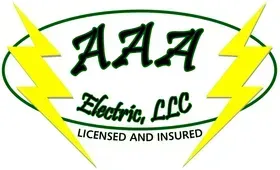Electrical Tips, Updates & Insights from AAA Electric

Understanding Virginia Electrical Codes: What Homeowners Should Know
Introduction
If you’re planning electrical work on your Virginia home — whether adding outlets, installing a generator, or upgrading your panel — you’ve likely heard about electrical code requirements. These regulations might sound technical, but they’re essential for ensuring your home’s electrical system is safe, efficient, and legally compliant.
Virginia follows its own version of the National Electrical Code (NEC), which sets standards for electrical installations statewide. Understanding these rules can help you avoid costly mistakes, inspection failures, or even safety hazards.
In this guide, we’ll explain what the Virginia electrical code covers, why it matters, and what homeowners should know before starting any electrical project. With insights from AAA Electric, a licensed electrical contractor based in Fishersville, VA, you’ll learn how to stay compliant and safe — without getting lost in the technical jargon.
What Are Electrical Codes?
Electrical codes are a set of standards that govern how electrical systems are designed, installed, and maintained. Their goal is simple: to protect people and property from electrical hazards such as fires, shocks, and system failures.
Virginia adopts and modifies the National Electrical Code (NEC) through its Virginia Uniform Statewide Building Code (USBC). This means that while the core NEC principles apply, Virginia may add or adjust certain requirements based on local needs and safety concerns.
Key objectives of Virginia’s electrical codes:
Prevent electrical fires and equipment damage.
Ensure proper grounding and circuit protection.
Promote safe installation of outlets, panels, and wiring.
Regulate generator, EV charger, and solar installations.
Protect contractors and homeowners through inspection standards.
AAA Electric’s licensed electricians are trained to follow the most recent version of the Virginia electrical code, ensuring every installation passes inspection and meets both safety and efficiency standards.
Why Electrical Code Compliance Matters
Ignoring electrical codes isn’t just risky — it’s illegal. Homeowners who cut corners on compliance could face penalties, failed inspections, or dangerous electrical issues.
1. Safety first
Electrical codes are designed to prevent shocks, fires, and system overloads. A compliant system protects both residents and property.
2. Home insurance coverage
Many insurance policies require proof that electrical work meets code. Non-compliant wiring can void your coverage after a fire or damage claim.
3. Property value and resale
When selling your home, unpermitted or non-compliant electrical work can delay sales or force costly corrections.
4. Legal and inspection requirements
All significant electrical work — including panel upgrades, wiring changes, or generator installations — must be inspected and approved by local building authorities in Virginia.
In short, code compliance isn’t just a formality. It’s peace of mind that your home’s electrical system is safe, efficient, and built to last.
Key Virginia Electrical Code Updates and Requirements
Electrical codes evolve regularly as technology and safety standards improve. Here are some of the most important updates Virginia homeowners should know.
1. GFCI protection
Ground Fault Circuit Interrupter (GFCI) outlets are now required in all wet or outdoor areas — kitchens, bathrooms, garages, basements, and exterior outlets. These outlets prevent shock hazards near moisture.
2. AFCI protection
Arc Fault Circuit Interrupter (AFCI) breakers are required in living areas such as bedrooms, hallways, and family rooms. They protect against electrical arcs that could cause fires.
3. Tamper-resistant outlets
All new or renovated homes must include tamper-resistant outlets, especially important for child safety.
4. Proper grounding and bonding
Every electrical system must have proper grounding to safely dissipate excess electricity and prevent shock.
5. Circuit labeling
All circuits in the electrical panel must be clearly labeled to identify the area or appliance they control.
6. Service disconnects
As of recent NEC updates, all new residential services must include an exterior emergency disconnect for firefighter and utility safety.
7. Energy-efficient requirements
Virginia’s electrical code encourages energy-efficient fixtures and wiring methods that support modern systems such as solar, EV charging, and standby generators.
AAA Electric keeps up with every update to ensure homeowners across Fishersville and the Shenandoah Valley meet all current Virginia code requirements.
How Homeowners Can Stay Code-Compliant
You don’t need to memorize the NEC to stay compliant — you just need to work with qualified professionals and make informed decisions. Here’s how:
1. Always hire a licensed electrician
DIY wiring or hiring unlicensed contractors can lead to unsafe installations and failed inspections. AAA Electric’s licensed team ensures all work is code-approved and properly documented.
2. Obtain necessary permits
Electrical permits ensure your work is reviewed and inspected by local authorities. Skipping this step can lead to fines or rework costs later.
3. Schedule regular electrical inspections
Routine inspections identify potential violations or outdated systems before they cause issues. This is especially important for older homes.
4. Upgrade outdated wiring and panels
Homes built before 1980 may have aluminum wiring or undersized panels that no longer meet today’s standards. Upgrading improves safety and ensures compliance.
5. Plan ahead for new installations
If you’re adding a generator, EV charger, or solar system, make sure your electrical infrastructure can handle the additional load per Virginia’s code.
6. Keep records of all electrical work
Documentation helps during home sales, insurance claims, and future renovations.
FAQs
Do I need a permit for small electrical repairs?
Minor repairs, like replacing outlets or switches, usually don’t require a permit. Larger projects — wiring, panel work, or new circuits — do.
How often does Virginia update its electrical code?
The Virginia USBC typically updates every few years to reflect the latest NEC standards.
What happens if I fail an electrical inspection?
You’ll receive a report listing code violations. Licensed electricians like AAA Electric can correct the issues and schedule a reinspection.
Can I install my own generator without an electrician?
No. Permanent standby generators must be installed by a licensed electrician using an approved transfer switch to meet Virginia code.
Are older homes grandfathered in under previous codes?
Yes, but when upgrades or renovations occur, new work must comply with current standards.
Conclusion
Electrical codes aren’t just red tape — they’re essential safeguards that keep Virginia homeowners safe from electrical fires, system failures, and costly legal issues. Understanding the basics helps you make informed decisions and ensures every project meets state and national safety standards.
AAA Electric, based in Fishersville, VA, has been serving local homeowners since 2009 with licensed, code-compliant electrical services. Whether you’re upgrading an old panel, installing a generator, or rewiring part of your home, their experienced electricians ensure every job meets Virginia’s latest electrical codes.
If you’re planning an electrical project, schedule a consultation with AAA Electric today and enjoy peace of mind knowing your home meets every safety requirement.
Our Services
Helpful Links
Contact Information
2016 Jefferson Hwy Fishersville, VA 22939
Business Hours
Mon - Fri: 9:00 am - 5:00 pm
Sat - Sun: Closed
© 2025 All Rights Reserved | AAA Electric
